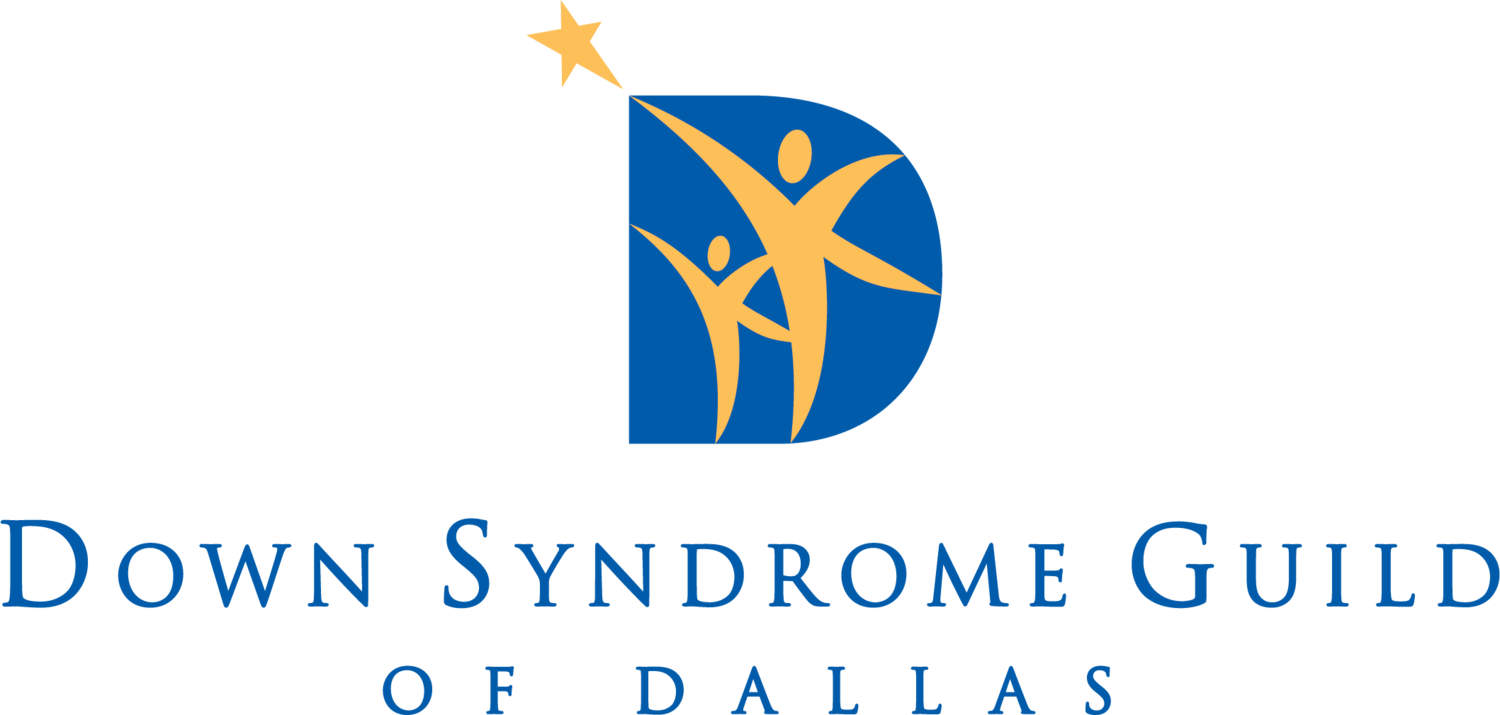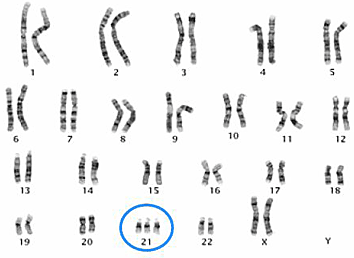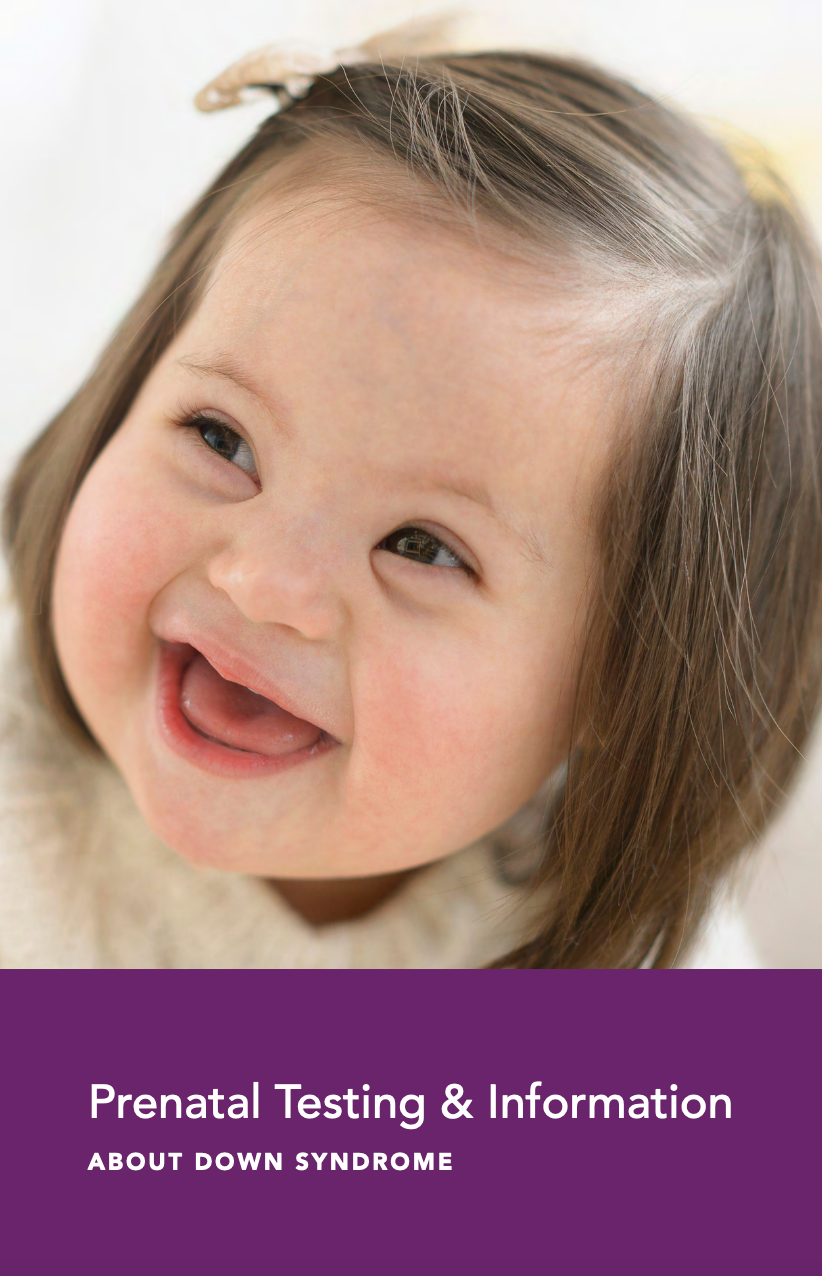About Down syndrome
What is Down syndrome?
Down syndrome is one of the most common genetic variations and occurs in approximately one in every 700 live births in the United States. For most people, each cell in the body has 23 pairs of chromosomes. One chromosome in each pair comes from the mother and the other comes from the father. Sometimes, during cell division, a full or partial extra copy of the 21st chromosome is present. This additional genetic material alters the course of development and causes the characteristics associated with Down syndrome.
What are the Characteristics of Down syndrome?
There are various common features among people with Down syndrome. However, every person with Down syndrome is a unique individual and may possess these characteristics to different degrees or not at all. Some common features found in people with Down syndrome include:
Low muscle tone (hypotonia) which makes muscles appear relaxed or “floppy”
Loose joints
Almond-shaped upward slanting eyes
A flattened face and/or nose bridge
Smaller stature, ears, hands, and/or feet
A single crease across the palm of the hand (palmar crease)
A protruding or larger tongue
Mild to moderate cognitive delays
Are There Different Types of Down syndrome?
There are three types of Down syndrome: Trisomy 21, Translocation Down syndrome, and Mosaic Down syndrome. The difference between each type can only be determined by looking at the chromosomes under a microscope as the physical features and behaviors are similar.
Trisomy 21: About 95% of people with Down syndrome have Trisomy 21. In this type of Down syndrome, each cell in the body has three separate copies of chromosome 21 instead of the usual two copies.
Translocation Down syndrome: This type accounts for about 3% of people with Down syndrome. It occurs when an extra part or a whole extra chromosome 21 is present, but it is attached or “trans-located” to a different chromosome rather than being a separate chromosome 21.
Mosaic Down syndrome: This type affects about 2% of people with Down syndrome. Mosaic means mixture or combination. For people with mosaic Down syndrome, some of their cells have three copies of chromosome 21, but other cells have the typical two copies of chromosome 21. Individuals with Mosaic Down syndrome may have the same features as others with Down syndrome. However, they may have fewer characteristics of the condition due to the presence of some (or many) cells with a typical number of chromosomes.
What Causes Down Syndrome?
The specific cause of the Down syndrome is still unknown. There is no definitive scientific research that indicates Down syndrome is caused by environmental factors or the parents’ activities before or during pregnancy. Down syndrome also occurs among people of all races and economic levels. Maternal age is the only factor that has been linked to an increased chance of having a baby with Down syndrome. However, due to higher birth rates in younger women, 80% of children with Down syndrome are born to women under 35 years of age.
How Is Down Syndrome Diagnosed?
PRENATALLY
FOR MORE INFORMATION ON PRENATAL TESTING, PLEASE CLICK HERE VIEW THE PRENATAL TESTING PAMPHLET AVAILABLE IN BOTH ENGLISH AND SPANISH.
There are two categories of tests for Down syndrome that can be performed before a baby is born: screening tests and diagnostic tests. Prenatal screens estimate the chance of the fetus having Down syndrome. These tests do not tell you for sure whether your fetus has Down syndrome; they only provide a probability. Diagnostic tests, on the other hand, can provide a definitive diagnosis with almost 100% accuracy.
There is an extensive menu of prenatal screening tests now available for pregnant women. Most screening tests involve a blood test and an ultrasound (sonogram). The blood tests (or serum screening tests) measure quantities of various substances in the blood of the mother. Together with a woman’s age, these are used to estimate her chance of having a child with Down syndrome. These blood tests are often performed in conjunction with a detailed sonogram to check for “markers” (characteristics that some researchers feel may have a significant association with Down syndrome). New advanced prenatal screens are now able to detect chromosomal material from the fetus that is circulating in the maternal blood. These tests are not invasive (like the diagnostic tests below), but they provide a high accuracy rate. Still, all of these screens will not definitively diagnose Down syndrome. Prenatal screening and diagnostic tests are now routinely offered to women of all ages.
The diagnostic procedures available for prenatal diagnosis of Down syndrome are chorionic villus sampling (CVS) and amniocentesis. These procedures, which carry up to a 1% risk of causing a spontaneous termination (miscarriage), are nearly 100% accurate in diagnosing Down syndrome. Amniocentesis is usually performed in the second trimester between 15 and 20 weeks of gestation, CVS in the first trimester between 9 and 14 weeks.
AT BIRTH
Down syndrome is usually identified at birth by the presence of certain physical traits: low muscle tone, a single deep crease across the palm of the hand, a slightly flattened facial profile and an upward slant to the eyes. Because these features may be present in babies without Down syndrome, a chromosomal analysis called a karyotype is done to confirm the diagnosis. To obtain a karyotype, doctors draw a blood sample to examine the baby’s cells. They photograph the chromosomes and then group them by size, number, and shape. By examining the karyotype, doctors can diagnose Down syndrome. Another genetic test called FISH can apply similar principles and confirm a diagnosis in a shorter amount of time.
How Will Having Down syndrome Affect My Child?
Down syndrome is a lifelong condition. Babies born with Down syndrome will grow and develop like all other babies, but those with Down syndrome generally develop at a somewhat slower pace. Children with Down syndrome may be delayed in achieving milestones such as walking, talking, and eating compared to neurotypical children. Individuals with Down syndrome possess varying degrees of cognitive delays, but the effect is usually mild to moderate and is not indicative of the many strengths and talents that each individual possesses. People with Down syndrome may have an increased risk for certain medical conditions such as congenital heart defects, respiratory and hearing problems, Alzheimer's disease, childhood leukemia, and thyroid conditions. However, many of these conditions are treatable, and people with Down syndrome lead long, healthy lives. Life expectancy for people with Down syndrome has increased dramatically in recent decades - from 25 in 1983 to 60 and older today.
Individuals with Down syndrome are becoming increasingly integrated into society and the community. People with Down syndrome attend school, work, participate in decisions that affect them, and contribute to society in many wonderful ways. Quality educational programs, a stimulating home environment, good health care, and positive support from family, friends, and the community enable people with Down syndrome to develop their full potential and lead fulfilling lives.
We Have Received a Down Syndrome Diagnosis. What Do We Do Now?
We know that receiving a Down syndrome diagnosis whether prenatally or after birth can often be unexpected and overwhelming for new families. The Down Syndrome Guild of Dallas is here to support you and your family no matter where you are on your Down syndrome journey. The Down Syndrome Guild has a New and Expectant Parent Program (in English and Spanish) where a trained First Call Family, a parent of a child with Down syndrome, will contact you to welcome you to the DSG community, answer your questions, and tell you about related programs and services. You can also request an informational Welcome Packet and sign up to receive our email newsletters. Please contact us at (214) 267-1374 or visit the New and Expectant Parent webpage for more details.
How Can the Down Syndrome Guild of Dallas Help My Family?
The Down Syndrome Guild of Dallas offers year-round programs for people with Down syndrome of all ages and their family members. Programs include the New and Expectant Parent program, Grupo de Familias Unidas for Spanish speaking families, social gatherings like picnics, holiday celebrations, and supper club, skill-building classes like music & movement and book club, and recreational camps like iCan Bike and iCan Swim.
The Down Syndrome Guild additionally offers educational seminars throughout the year for parents, guardians, and community professionals. The organization has an extensive resource library and provides resources and referrals relating to a variety of topics as well.
Through Down Syndrome Guild social, educational, and recreational programs, people with Down syndrome and their families connect to form lifelong friendships and learn from experts in their respective fields to support development throughout the lifespan. For more information on DSG programs for all ages as well as upcoming events please visit Overview of Programs and Calendar.



